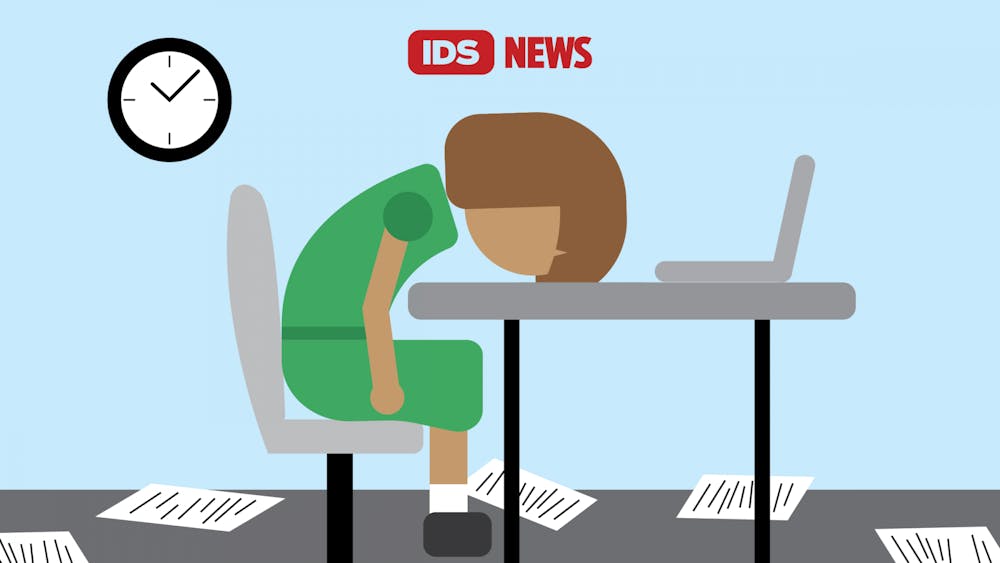While checking on the health of IU employees in April, Angela L. Reese, Healthy IU work-life consultant, started to experience pressure and burnout from her own job with back-to-back meetings. She’s now had to practice what she preaches.
During the pandemic, burnout is something almost everyone has a chance of experiencing, Reese said. Lindsay Potts, manager of outpatient behavioral health services for IU Health, said people have been experiencing different types of stress that could lead to employee burnout, which she describes as becoming exhausted with part of or all of a person’s job.
“There’s this slow burn underneath all of this that’s almost this community stress, this community trauma,” Potts said.
Reese also described burnout as a slow erosion of energy and enthusiasm in a job. It can lead to complete emotional turmoil, causing disengagement in work and a decrease in productivity, she said.
Elizabeth Malatestinic, senior lecturer in human resource management, said burnout is really a mental health issue, and it can manifest in a variety of ways.
For some people, burnout may make them feel a lack of motivation and a feeling of powerlessness, which can lead people to being dissatisfied in their job over time. However, before deciding if it’s worth quitting a job, Potts recommends stepping back and looking at whether stress is stemming from the current situation.
“Try not to make permanent choices in a temporary state of mind,” Potts said.
Because people begin to psychologically withdraw, Malatestinic said right now, as more people are working from home, burnout can be harder to spot than if they were physically in the workplace. This is why she said it’s important for employers to consider how they are communicating with their employees. She said just acknowledging the challenges of working right now can go a long way. She said it's also helpful not overload or bombard employees during this time.
For employees experiencing burnout, Malatestinic and Reese suggest taking paid time off, if available. Malatestinic said people may not be taking it because they have nowhere to go right now, but regardless, she said people still need a break from work. But Potts said burnout is not something that can necessarily be fixed overnight.
“Ultimately, it’s about finding that balance that will work long term,” Potts said.
In similar ways, people can try to prevent burnout. Potts, Reese and Malatestinic emphasize the point of making sure people are taking care of themselves, which Potts said looks like having healthy boundaries and a good sense of your own needs in terms of balance of work duties and times.
She and Malatestinic said having healthy boundaries includes separating work and home life.
“If you were still in the office, you might say well I’ll deal with that tomorrow,” Malatestinic said. “But since you’re at home and your computer is right there, you get back on the computer and start working again.”
Reese said she had to personally experience how to overcome this. She said having small breaks, even just a couple minutes in the day can help a lot. Potts said small adjustments, like taking a walk or shutting off notifications after a certain time can make a huge difference.






